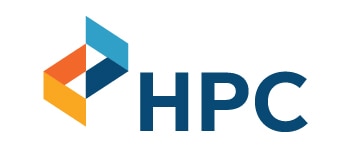- Massachusetts Health Policy Commission
Media Contact for HPC ISSUES KEY FINDINGS FROM UPCOMING REPORTS
Matt Kitsos, Press Secretary
BOSTON — Wednesday, November 28, 2018 – Today, the Massachusetts Health Policy Commission (HPC) issued select findings from two new analyses set to be released in early 2019 – the Annual Cost Trends Report (slides 31-46) and a study on the Availability of Co-Occurring Disorders Treatment in Massachusetts (slides 30-53). The findings were highlighted at the November 28, 2018, Market Oversight and Transparency Committee (MOAT) and Care Delivery Transformation Committee (CDT) meetings. Commissioners discussed the findings and provided feedback and potential policy recommendations to be incorporated in the final reports.
“The findings previewed today highlight the HPC’s ongoing efforts to leverage objective data and research to inform critical health policy issues facing the Commonwealth,” said David Seltz, Health Policy Commission Executive Director. “The HPC will remain focused on addressing the challenges posed by our reports and making policy recommendations to address these issues, increase transparency, and ensure the system is competitive and efficient.”
2018 Annual Cost Trends Report
The HPC’s Annual Cost Trends Report provides insight into trends in Massachusetts’ health care system, identifying key factors that contributed to the state’s performance relative to the cost growth benchmark; an assessment of opportunities to increase quality and efficiency; and an update on progress in critical areas of health care reform. In addition to the analysis on variation in hospital admissions from the emergency department (ED), the 2018 cost trends report will feature an analysis of trends in hospital inpatient and ED prices and variation in health care spending across provider organizations.
In previous research, the HPC has identified overall ED utilization and potentially avoidable ED utilization as a major driver of health care costs in the Commonwealth. The findings issued today explore inpatient admissions from the ED, specifically examining variation in admission by hospital and hospital type for certain conditions, to better understand the potential for reducing unnecessary inpatient stays.
Key Findings – Variation in Hospital Admissions from the Emergency Department:
- In 2016, 23% of all medical ED visits in Massachusetts resulted in either a transfer, long observation stay, or inpatient admission.
- Admission rates by individual hospital varied considerably, from 13% to 32%.
- Within certain clinical groupings, such as septicemia, there was little variation in whether a patient would be admitted.
- Other conditions, such as chest pain and COPD, had significant variation indicating that there may be more discretion in admitting practices or other unobserved factors.
- Hospitals with high admission rates for some conditions tended to have high rates for other conditions.
- Hospital variation does not appear to be driven by the type of hospital (AMC, Teaching, Community).
- Hospitals with low admission rates did not tend to see more frequent revisit rates among those patients.
New Study: Availability of Co-Occurring Disorders Treatment in Massachusetts
In 2016, the state Legislature charged the HPC with assessing the availability of providers treating patients with a “dual diagnosis”, or co-occurring mental illness and substance use disorder (SUD). Nationally, co-occurring disorders affect 18 percent of adults with mental illness and 43 percent of adults with SUD. In Massachusetts, approximately 20 percent of adults with mental illness and 10 percent with SUD are affected with co-occurring disorders.
As part of the legislation, the HPC was tasked with creating an inventory of health care providers capable of treating patients with dual diagnoses, including the location and nature of services offered at each such provider, assessing sufficiency of and barriers to treatment, considering factors such as geographic barriers to access, insurance coverage, and network design, and making recommendations to reduce those barriers to care.
Key Findings – Availability of Co-Occurring Disorders Treatment in Massachusetts:
- In 2016, co-occurring mental health and SUD comorbidities were identified in 6% of combined acute hospital visits.
- In Massachusetts, only a quarter of behavioral health clinics or counseling sites are licensed to treat both mental illness and SUD.
- Treatment of one behavioral health condition while screening for, and if identified and appropriate, treating another, produces the best care.
- Through its survey of over 500 sites of service and independent clinicians, the HPC found that patients who are deaf, have a history of judicial involvement, or are between 16 and 25 years old have the most difficulty accessing treatment.
- The HPC also found through its survey that adults with co-occurring disorders who do not speak English have less access to same-day appointments and appointments within two weeks than those patients who speak English.
- The survey showed that providers do not all provide sufficient access to evidence-based treatment for patients with SUD.
- Providers offering buprenorphine reported the widest range of wait times to the survey, from 2 weeks to more than 5 weeks, compared to responding providers who offer methadone and naltrexone.
Next Steps
The HPC will present preliminary findings from the 2018 Annual Cost Trends Report at public meeting on December 13, 2018. The final Cost Trends Report will be released in early 2019.
The HPC will also release the final study on the Availability of Co-Occurring Disorders Treatment in Massachusetts in early 2019.
###
